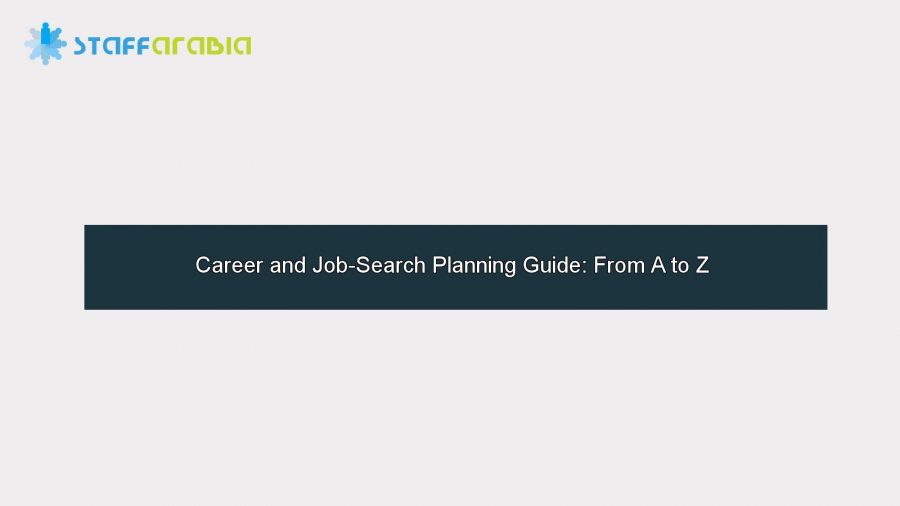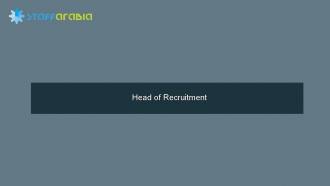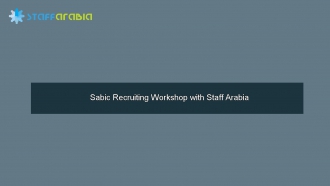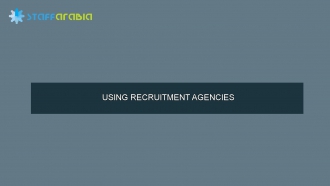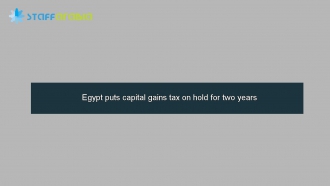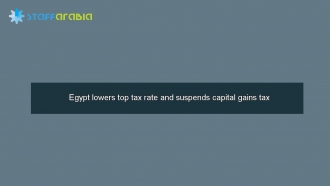In any subject you took in school, you needed to learn key concepts to better understand the material and perform well on quizzes and exams. The same principle holds true for career planning and job-hunting.
With this idea in mind, here are some of the most important job-seeker career and job-search concepts, ideas, and strategies, from A to Z.
Accomplishments: Understanding and documenting your previous accomplishments (from all your experiences) is an important part of career planning because your accomplishments help build the foundation for your next career move. Accomplishments are the points that really help sell you to an employer -- much more so than everyday job duties, and you can leverage your accomplishments for job-search success at all stages of career planning and your job-search.
Branding: If there is one thing that career experts agree upon is that personal branding is the future of career development and job-hunting. Branding (some call it personal branding or self-branding when talking about individuals) is essential to career advancement because branding helps define who you are, how you are great, and why you should be sought out. Branding is your reputation. And while the key branding tool has been the resume, more and more, your brand is what can be found about you online -- including your Website, social networking sites, articles by or about you, and more.
Career Plan: The best way to get as close as possible to the career you wish to have in the future is through planning. A career plan is a detailed roadmap that helps you get from where you are today to where you want to be in the future. With a career plan, you not only map out the different job and promotions you seek, but also any additional experiences, training, or education you need in order to obtain those promotions. Career planning is best done away from the daily grind of your work -- such as over one or two weekends.
Dress for Success: Certainly one of the keys to looking like you belong in a certain career is to dress the part. Dressing for success is all about making good -- and lasting -- first impressions in job interviews and during those first weeks on the job. Different careers -- and even different employers in the same career -- can have very dissimilar perceptions of dressing for success. For example, the business attire for an employee of IBM is quite different than for an employee of Google.
Elevator Speech: Think of this vital career tool as the short story of why you are distinctive as a job-seeker or employee. You might actually have several different versions of various lengths, from 30 seconds to several minutes, for use in various situations (such as career fairs, networking events, job interviews, and cold calling). The idea is to succinctly tell the person you are giving it to who you are, what makes you unique, and the benefits you can provide.
Goals: One of the key pieces of career planning deals with envisioning your future -- and to do so, you'll need to set goals you'll want/need to achieve to reach your career objective. Of course, one of the hardest things to do in career planning -- once you have identified your career objective -- is identifying the various steps (goals) you need to accomplish along the way. Try to remain a bit flexible with your goals so that if unforeseen opportunities arise you can take advantage of them if they take you closer to your career objective.
Hidden Job Market: The vast majority of job openings are filled without the employer ever advertising the positions -- thus if you rely solely on replying to job ads, you are missing as many as 85 percent of the employment opportunities. To uncover the hidden market, job-seekers mostly use networking (see below) -- connecting with people they know who may know someone who needs to fill an opening -- but also through cold calling and direct marketing to employers.
Interviewing Preparation: There's no question that the most successful job-seekers -- those who receive multiple job offers -- are the people who spend a good deal of time preparing for interviews. Interview preparation can take many forms, but the basic premise involves developing (but not memorizing) responses for typical interview questions, researching the employer, and practicing your responses (with a partner, to a mirror, or in a mock interview). Interview responses should tell a story that illustrates the answer to the question.
Job-Hunting Etiquette: In job-hunting, first impressions often make lasting impressions. Etiquette sometimes gets a bad rap or is overlooked perhaps because the term seems antiquated. But make no mistake, courteous job-seekers stand above those job-seekers without them -- so be polite to everyone during your job-search, dress appropriately, listen and communicate well, always appear upbeat, and show your appreciation.
Keywords: In today's job market, job-seekers need to identify nouns and noun phrases that relate to the skills and experience that employers use to recall resumes scanned into a database. Keywords can be precise "hard" skills -- job-specific/profession-specific/industry-specific skills, technological terms and descriptions of technical expertise, job titles, certifications, names of products and services, and industry buzzwords.
Letters: The name of the concept -- letters -- may be a bit archaic in an era of electronic messages, but the principle behind why job-seekers send letters remains. At different points in your job-search and career planning, you'll write introductory letters to employers and network contacts, follow-up letters, and thank-you letters. Whether you send your letters by postal mail or email is not as important as the impact you can make by sending the proper message at the proper time. For more information on the power and use of cover letters.
Mentor: One of the greatest resources for obtaining help with your career planning is a mentor -- a person at a higher level within a company or within your profession who counsels you and helps guide your career. A mentor relationship is one where the outcome of the relationship is expected to benefit all parties in the relationship for personal growth, career development, lifestyle enhancement, spiritual fulfillment, goal achievement, and other areas mutually designated by the mentor and partner.
Networking: Involves developing a broad list of contacts -- people you've met through various personal and online social, professional, and business functions -- and encouraging them assist you in looking for a new job or career direction. People in your network may be able to give you job leads, offer you advice and information about a particular career, company or industry, and introduce you to others so that you can expand your network of contacts.
Occupations: Another term for careers and jobs, "occupation" basically refers to your principal business or employment; sometimes it is also referred to as a profession when the occupation requires more specialized education or knowledge and a vocation when it's done for altruistic benefit more than income. When conducting career planning, you'll find literally hundreds of different occupations to consider and evaluate as you search for the one or two that best fit you -- for which you have a passion.
Passion: If there is just one ideal goal of career planning it revolves around finding your career passion. Yes, many people work their entire lives in jobs and careers that are completely or partially unfulfilling -- but do you want to be one of those people? Career planning should be about finding that one or more possible careers in which you feel you belong; it's about finding a career that energizes you, inspires you, excites you. Finding and working in your career passion will make your work fulfilling.
Questions: Toward the end of most job interviews, the interviewer will give the job-seeker an opportunity to ask questions. Doing so shows your interest in the position and employer. The key is to ask at least a few questions -- and not easily answered questions (such as, "what are your major product lines?") that you should know from your research, but thoughtfully prepared questions.
Resumes: One of the key elements of any successful career planning and job-search is your resume. A resume is a self-marketing document that summarizes your accomplishments, your education, as well as your work experience, and should reflect your special mix of skills and strengths. You should always customize your resume to every employer and job, and have multiple versions (including text and formatted) for a variety of job-hunting and networking situations. Quintessential Careers offers articles, tutorials, samples, and more -- for all levels of job-seekers.
Salary Negotiation: One of the hardest aspects of job-hunting for most job-seekers is the process of salary negotiation. Most people are not skilled negotiators, and many even dislike the idea of having to haggle over money, but it's a valuable skill to learn so that you can boost your salary and/or benefits. Receiving a better job offer not only helps you in the present, but also continues adding benefits as the years go by and the additional benefits compound.
Transferable Skills: These are skills you have acquired during any activity in your life -- jobs, classes, projects, parenting, hobbies, sports, virtually anything -- that are transferable and relevant to what you want to do in your next job or career. You should consider describing transferable skills in all your key marketing documents (resumes, cover letters), as well as in your responses to job interview questions.
Unique Selling Proposition: What can you offer that no other applicant can? What is the one reason the employer should want to hire you above all other candidates? Developing your Unique Selling Proposition (USP) is a critical component of your career branding. Your USP is the one thing that makes you different -- and more desirable -- than any other job-seeker. Your USP could be your mix of experiences, educational background, attitude and motivation -- or any combination of them.
Volunteering: One of the best ways to expand your career and job skills while doing something personally rewarding is volunteering your time with a non-profit organization. When considering a career change, volunteering is a great way to gain experience in the new career field that you can then leverage to help you land a paid position. Interestingly, there is also a growing trend for major corporations to encourage volunteering efforts, even giving employees time off to volunteer.
Workplace Values: It's not just enough to find and plan for your ideal career, you also need to find the best employer -- for you -- in your career field. One of the worst mistakes you can make as a job-seeker is finding the seemingly perfect job with an employer that does not share your values. When you understand the values you cherish most highly, you can evaluate whether your current employer (or a prospective employer) supports those values.
Xtra Words: There's no need to make up new words or find creative ways to spell others (as we just did). Besides using spell-check when crafting your resumes, cover letters, and thank-you notes, proofread them carefully -- and when possible, ask someone else to proofread them also. You don't want to misspell someone's name or the name of the employer. And spell-check won't catch your incorrect spelling of plateau as "plat-tow" -- or any other common typos.
Yes: As a job-seeker, you always want to appear positive and upbeat, thus "yes" should be much more in your vocabulary than "no." And of course your ultimate goal is obtaining a great job offer and being able to say yes to accept it. Even during long stretches of the job-search doldrums, the key is to stay as positive and upbeat as possible -- and keep working at developing job leads and following up all leads and interviews.
Zeal: Showcasing a high level of interest and energy to prospective employers is often a critical factor in getting chosen over others to receive a job offer. In job interviews, show your zeal by having good posture, smiling, and making strong eye contact. After interviews, exhibit your zeal with a thank-you letter and regular follow-up indicating your ongoing interest in the position and employer
